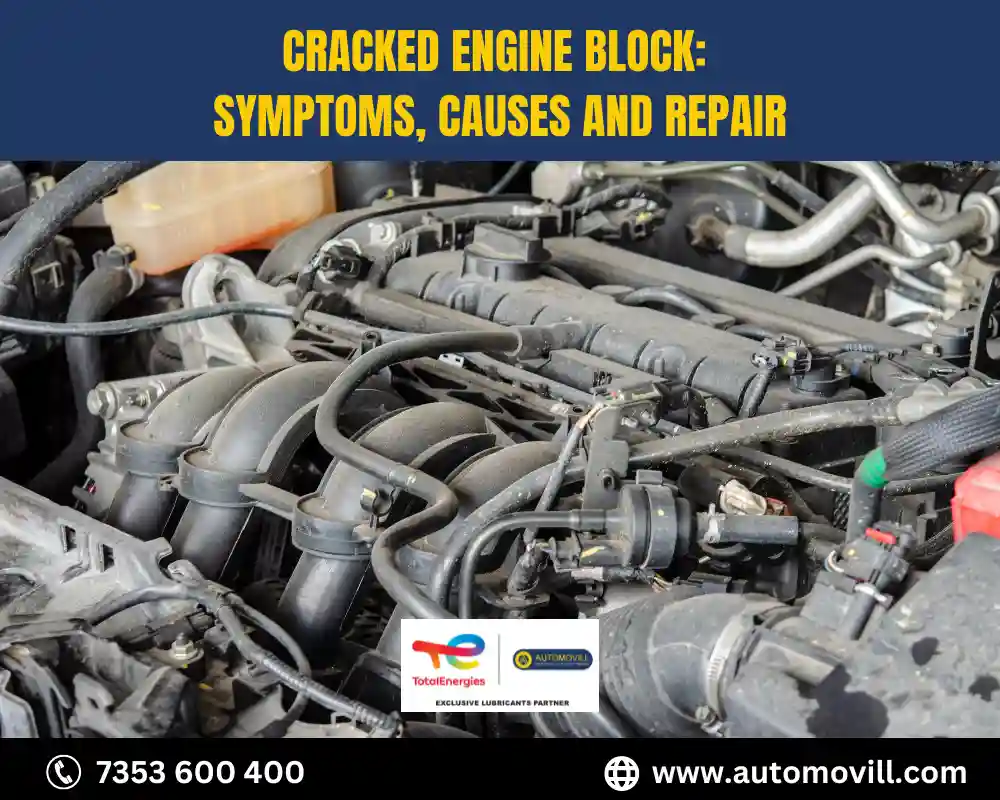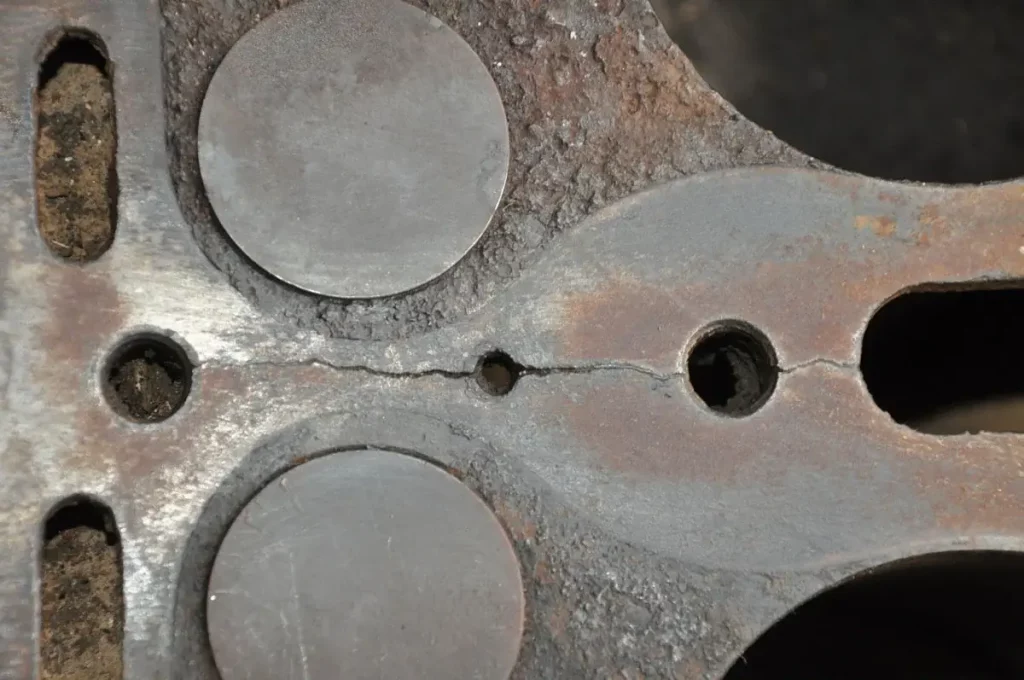
A cracked engine block is an extremely serious issue in your car’s engine that can have far-reaching consequences if left unaddressed.
In this blog, we’ll explore the symptoms, causes, diagnosis, and potential solutions for a cracked engine block.
We’ll also answer the pressing question of whether it’s safe to drive with a cracked engine block and for how long.
Symptoms of a Cracked Engine Block
A cracked engine block can exhibit various symptoms, which may vary depending on the size and location of the crack. Common symptoms include:
- Overheating: A cracked engine block can lead to coolant leakage, causing your engine to overheat.
- Coolant Loss: If you constantly find yourself refilling the coolant reservoir, it could indicate a leak.
- White Smoke from Exhaust: White smoke may indicate coolant entering the combustion chamber.
- Reduced Engine Performance: Cracks can affect cylinder compression, resulting in power loss.
- Mixing of Oil and Coolant: Oil and coolant may mix due to a crack, leading to engine damage.
Causes of a Cracked Engine Block

Understanding the causes can help prevent a cracked engine block:
- Freezing: Exposure to extreme cold can freeze the coolant and expand, causing cracks.
- Overheating: Excessive engine heat can weaken the block, leading to cracks.
- Poor Maintenance: Neglecting coolant changes or engine maintenance can accelerate block deterioration.
- Engine Stress: High-performance or older engines may be more prone to cracking.
- Manufacturing Defects: Rarely, manufacturing defects can lead to weak points in the block.
Diagnosis of a Cracked Engine Block
Determining if you have a cracked engine block is essential. Methods include:
- Visual Inspection: Look for visible cracks or coolant leaks.
- Cooling System Pressure Test: This pressurizes the system to reveal leaks.
- Compression Test: Irregular compression in one or more cylinders can indicate a crack.
- Coolant and Oil Analysis: The mixing of fluids suggests a crack.
- Thermal Imaging: Specialized cameras can detect temperature variations.
Can You Drive with a Cracked Engine Block?
In most cases, driving with a cracked engine block is not advisable. It can lead to further damage, engine overheating, and a potentially dangerous breakdown. It’s best to tow your vehicle to a repair facility.
Can a Cracked Engine Block Be Repaired?
Repairing a cracked engine block is possible, but it’s a complex and costly process. Options include:
- Welding: Welding the crack, although challenging, can be effective if done by a skilled technician.
- Engine Block Sealer: Some sealants can temporarily fix minor cracks, but they’re not a permanent solution.
- Engine Block Replacement: In severe cases, replacing the engine block may be the safest and most effective option.
How Long Can You Drive with a Cracked Engine Block?
Driving with a cracked engine block is a risk. The duration you can drive depends on the crack’s size and location, but it’s best to avoid driving at all to prevent further damage. Get your vehicle inspected and repaired promptly.
Conclusion
A cracked engine block is a serious issue that requires immediate attention. Recognizing the symptoms, understanding the causes, and seeking professional diagnosis and repairs are crucial steps to keep your vehicle running smoothly and safely.
Ignoring a cracked engine block can lead to more significant problems and costly repairs down the road.
